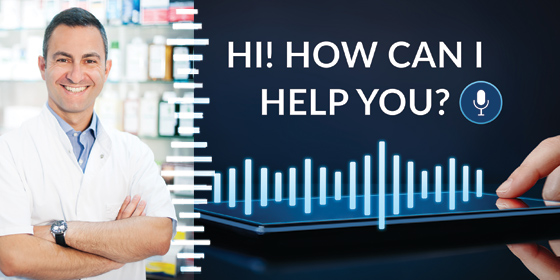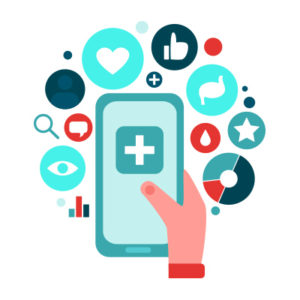
The education of proper medication use should be a top priority for pharmacists in their efforts to improve the quality of patient care. Since pharmacists are medication experts on the front lines of health, actively working to help their patients live healthy lives, they should also be ready to combat misinformation and disseminate accurate information to their patients.
Where else are patients getting their information? The Internet.
 The internet is a wealth of information and potential misinformation for your patients. Yes, even your patient demographic of 65+ are actively online. Here’s a few stats reported by Pew Research Center’s Internet/Broadband Fact Sheet:1
The internet is a wealth of information and potential misinformation for your patients. Yes, even your patient demographic of 65+ are actively online. Here’s a few stats reported by Pew Research Center’s Internet/Broadband Fact Sheet:1
“Roughly nine-in-ten American adults use the internet.”
“Roughly two-thirds of American adults have broadband internet service at home.”
Another chart from the same Pew Research Center report shows 66% percent of U.S. Adults 65 and older are using the internet.
How does this relate to health education?
As internet users try to educate themselves on illness symptoms and seek out medication remedies and other health solutions, they might not be visiting reputable websites or gaining accurate information. They can also be influenced by over-the-counter brands that fight and pay for top spots in search engine optimization. They might also be influenced by online personalities, message boards and social media responses.
A 2017 dotHealth survey highlighted on pm360online explained: “When researching information about a specific health condition or question—specifically, 57% of consumers go online first vs. 32% that would go to their doctor or other healthcare professional first. When we break this down by gender, we find that women (63%) are more likely to research on the internet first then men (52%).”2
Keystroke internet health knowledge has been available since the 90’s, but in the last 10 years, the internet has amplified consumer reach through mobile and wireless computer devices that utilize virtual assistants to answer life’s many questions. That includes health questions.
A 2016 JAMA study on smartphone-based conversational agent reported, “When asked simple questions about mental health, interpersonal violence, and physical health, Siri, Google Now, Cortana, and S Voice responded inconsistently and incompletely.” 2
What can you as pharmacists do to intervene?
- Strategize with your pharmacy team. Designate someone on your staff to keep an eye out for patients who may have questions.
- Ask your patients how they are doing, about their health, and if they have questions concerning their medications at check out every time.
- Research and review the internet on your own. MedlinePlus.gov and Healthfinder.gov are government health sources offering health topic information online. You can decide what articles and links you wish to add to your education resources.
- Promote consultations and medication reviews to your customers.
- Keep brochures, posters, and info cards up to date in your educational resource center.
By promoting your educational knowledge, you can help patients make better health decisions, help them understand their medication, and provide quality advice that solidifies your position as the medication expert.
1Source: Pew Research Center Internet/Broadband fact sheet http://www.pewinternet.org/fact-sheet/internet-broadband/
2 Source: How Consumers Find and Use Online Health-Related Content in 2017 https://www.pm360online.com/how-consumers-find-and-use-online-health-related-content-in-2017/
3Source: Adam S. Miner, PsyD; Arnold Milstein, MD; Stephen Schueller, PhD; Roshini Hegde; Christina Mangurian, MD, MAS; Eleni Linos, MD, DrPH. Smartphone-Based Conversational Agents and Responses to Questions About Mental Health, Interpersonal Violence, and Physical Health JAMA Internal Medicine May 2016 p 620-625 https://jamanetwork.com/journals/jamainternalmedicine/fullarticle/2500043


